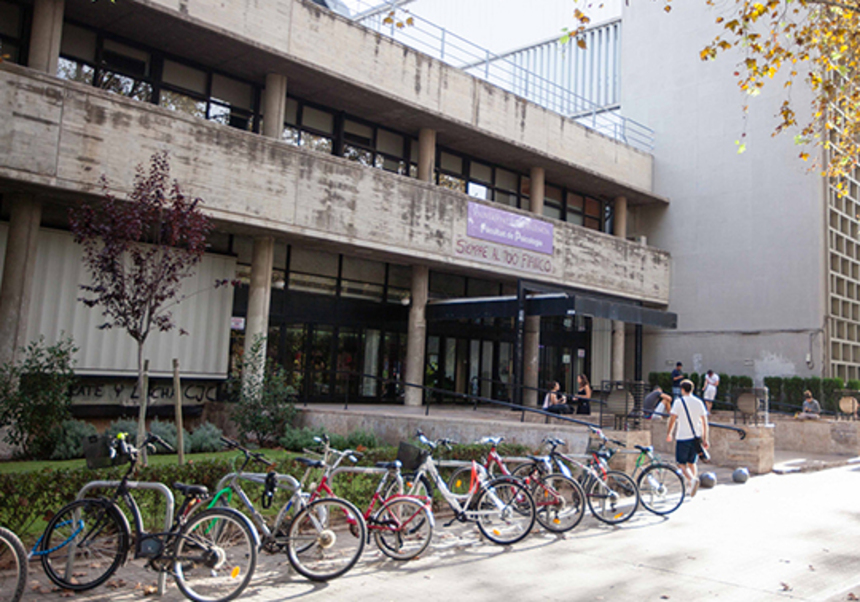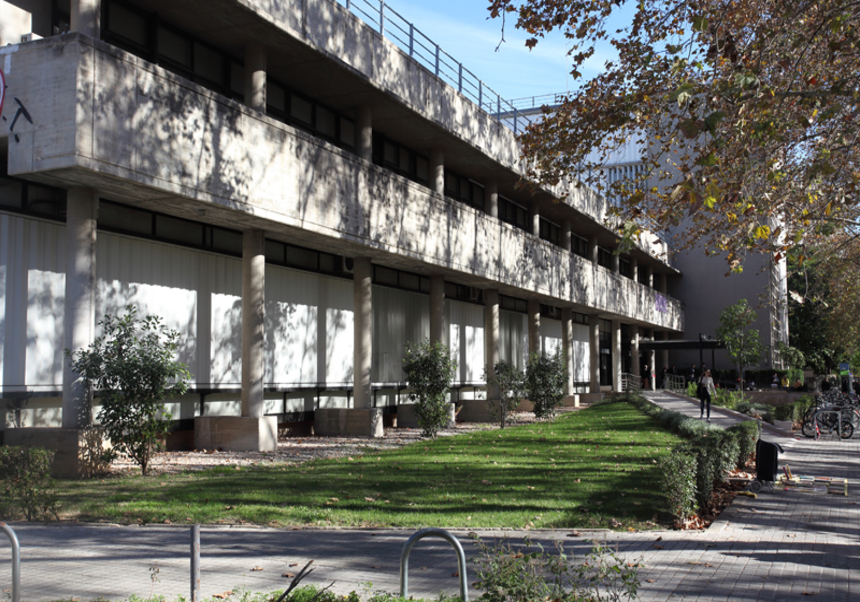- Evaluation:
- Sexuality in persons with intellectual functional diversity:
Inventory of Sexual Knowledge for People with Intellectual Disability (Gil-Llario et al., 2021) Estimating sexual knowledge of people with mild intellectual disability through a valid and reliable assessment scale: ISK-ID). This is a short assessment tool that consists of 34 yes-or-no questions that evaluates the sexual knowledge of men and women with respect to: the concept of sexuality dealing with the types of activities are considered sexual, or not, depending on their context; promoting positive body image and sexual communication; the nature of different sexual practices such as masturbation, oral sex, vaginal sex, and anal sex; homosexuality and sexual diversity; dates, intimacy, and assertiveness in relationships and how to interact with a romantic or sexual partner in the context of intimate relations; and sexual health and the prevention STIs, STDs, and unwanted pregnancies.
Reference: Gil-Llario, M. D., Castro-Calvo, J., Fernández-García, O., Elipe-Miravet, M. & Ballester-Arnal, R. (2021). Estimating sexual knowledge of people with mild intellectual disability through a valid and reliable assessment scale: The ISK-ID. Journal of Applied Research in Intellectual Disabilities. 00, 1–13. https://doi.org/10.1111/jar.12909
Assessment of Sexual Behaviour and Concerns of People with Mild Intellectual Disabilities: SEBECOMID-S (Gil-Llario et al., 2021) (Development and psychometric properties of a self-report instrument for the assessment of sexual behaviour and concerns of people with mild intellectual disabilities: SEBECOMID-S). The SEBCOMID-S is designed to gather information about the positive sexual experiences of people with mild intellectual disabilities and determine what practices they have and have not participated in--data necessary in order to provide relevant information on the types of sexual practices and prevent risks. Having information about these aspects helps determine individual and/or group needs and concerns, and to select and create training contents adapted to their situation and experience. The SEBECOMID-S is a self-administered instrument that includes 14 questions that assesses their worries or concerns related to sex or interpersonal relationships; their sex practices or the sexual activities they engage in; and their knowledge and use of condoms. The response format combines 4-level Likert scale items with dichotomous items (YES/NO). For optimal adaptation of the questions, this resource is presented in two versions, one for men and another for women. It is therefore recommended to use the version that corresponds gender.
Reference: Gil-Llario, M. D., Flores-Buils, R., Elipe-Miravet, M., Fernández-García, O., & Ballester-Arnal, R. (2021). Development and psychometric properties of a self-report instrument for the assessment of sexual behaviour and concerns of people with mild intellectual disabilities (SEBECOMID-S). Journal of Applied Research in Intellectual Disabilities, 1–9. https://doi.org/10.1111/jar.12924
Assessment of attitudes toward sexuality of people with intellectual functional diversity: ASEXID (Gil-Llario et al., 2021) (Assessment of attitudes toward sexuality of people with intellectual disability). The ASEXID contains 18 items with a Likert-style response format with five frequency levels (from strongly disagree to strongly agree) that assess attitudes toward different aspects related to the sexuality of people with intellectual disability. The items are grouped into 3 main factors: “normalising attitude” items that express the similarity between the assessment of the sexuality of those with and without intellectual functional diversity; “negative attitude” items that reflect the belief that people with intellectual functional diversity have less interest in sexuality that would justify the consideration that it is unnecessary to provide affective-sexual education to this group; and “paternalistic attitude” items that express the concern that stems from the alleged lack of control of their sexual impulses in people with intellectual functional diversity.
Reference: Gil-Llario, M.D., Fernández-García, O., Castro-Calvo, J., Caballero-Gascón, L. & Ballester-Arnal, R. (2021) Validation of a Tool to Assess Attitudes Towards Sexuality of Individuals with Intellectual Disability (ASEXID): A Preliminary Study. Sex Disabil. https://doi.org/10.1007/s11195-020-09650-3
Questionnaire on Sexuality for People with Intellectual Disability CUSEXDI (Gil-Llario et al., 2020). CUSEXDI is an assessment tool containing 34 items that provides information about different aspects of sexuality in people with intellectual disabilities, such as sexual behaviour, preventative measures, information received about sexuality, and experiences of sexual abuse. Its semi-structured interview format is conducive to obtaining such information, even from those with limited literacy and comprehension skills.
Reference: Gil-Llario, M.D., Ballester-Arnal, R., Fernández-García, O., & Morell-Mengual, V. (2020). La evaluación de la sexualidad de las personas con discapacidad intelectual: construcción y descripción de una entrevista semiestructurada. International Journal of Developmental and Educational Psychology, 1(1), 379-392. https://doi.org/10.17060/ijodaep.2020.n1.v1.1795
Detection of Sexual Abuse Risk Screening Scale (DSARss)(Gil-Llario et al., 2020) (Detection of Sexual Abuse Risk Screening Scale: DSARss). This assessment instrument contains 19 dichotomous items (YES/NO) that evaluate the level of risk of sexual abuse in an individual with intellectual functional diversity. The items are organized into the following factors: “acceptance of the abuse due to affection” which contains questions that reflect the normalisation of the abuse when it comes from a person who treats them properly and/or the inability to identify sexual abuse when the perpetrator is someone they know; “denial of the risk associated with places” which deals with questions pertaining to the ability to perceive the risk of sexual abuse in different public and private places; “risk factors and self-protection skills” with items that assess capacities related to identifying factors that increase the risk of being sexually abused, identifying factors that protect them from sexual abuse or assault, and to disclosing or terminating the abuse; and the “lack of awareness of intimacy rules” which includes items about respect for body intimacy and physical contact. This instrument has both a male and female version, as each item is accompanied by an images of the item’s content to facilitate understanding.
Reference: Gil-Llario MD, Ballester-Arnal R, Morell-Mengual V, Caballero-Gascón L, Castro-Calvo J. (2020). Development and Psychometric Properties of the Detection of Sexual Abuse Risk Screening Scale (DSARss). Sexual Abuse;32(7):850-877. doi:10.1177/1079063219858061
Assessment of Sexual Behaviour in People with Intellectual Functional Diversity: Hetero-report parental version (ECS-PA) (Gil-Llario et al., 2019). ECS-PA is a heteroinformed assessment tool for parents of individuals with intellectual functional diversity. It is comprised of 32 dichotomous items (YES/NO) grouped into 3 main factors that aim to evaluate the perception of the comprehension of privacy and social rules, perception of knowledge about sexuality, and concerns for inappropriate sexual behaviour.
Reference: Gil-Llario, M. D., Elipe-Miravet, M., Giménez-García, C., Bisquert-Bover, M., & Castro-Calvo, J. (2019). Validación de un instrumento de evaluación del comportamiento sexual de persona scon discapacidad intelectual para padres (ECS-PA). Revista INFAD de Psicología. International Journal of Developmental and Educational Psychology., 5(1), 519-528. https://doi.org/10.17060/ijodaep.2019.n1.v5.1634
Assessment of Sexual Behaviour in People with Intellectual Functional Diversity: Hetero-report professionals version (ECS-PR) (Gil-Llario et al., 2020). The ECS-PR is a heteroinformed assessment tool for professionals working with people with intellectual functional diversity in occupational settings and is comprised of 24 dichotomous items (YES/NO). The items are designed to evaluate the perception of professionals on the sexual behaviour and knowledge in people with intellectual disability, specifically in relation to concerns about the individual’s inappropriate or uninhibited sexual conduct, the perceived knowledge of the individual on privacy and social norms, the perceived knowledge of the individual on sexuality, and the concerns about the sexuality of the individual.
Reference: Gil-Llario, M.D., Morell-Mengual, V., Fernández-García, O., Castro-Calvo, J., & Ballester-Arnal, R. (2020). Development and psychometric properties of an instrument for the Assessment of Sexual Behaviour and Knowledge of people with Intellectual Disability. Journal of Apllied Research in Intellectual Disabilities, 00, 1-12. https://doi.org/10.1111/jar.12823
- Sexuality in the general population (adolescents and adults):
Instrument for the Assessment of Assertiveness in Sexual Relations (Gil‑Llario et al., 2021). (Development and Psychometric Properties of an Instrument for the Assessment of Assertiveness in Sexual Relations). The ASRQ is a 24-item self-reported instrument designed to determine the individual’s skills in communicating their sexual thoughts and feelings, without offending or hurting the other person or feeling bad about themselves. It includes items that refer to assertive communication in diverse sexual scenarios: during flirtation; when exchanging kisses, embraces, and fondling; when initiating different sexual practices; while engaging in sexual practices that they do not like; in the context of the use of condoms or latex barriers during sexual intercourse; and in the context of having consumed alcohol or drugs. Likewise, we can differentiate items with a more passive nuances, purely assertive ones, or those reflecting aggressiveness. At the same time, some of them focus on initiating requests, whereas others focus on responding to requests.
Reference: Gil‑Llario, M.D., Fernández‑García, O., Gil‑Juliá, B., Estruch‑García, V. & Ballester‑Arnal, R. (2021). Development and Psychometric Properties of an Instrument for the Assessment of Assertiveness in Sexual Relations. Sexuality Research and Social Policy. https://doi.org/10.1007/s13178-021-00630-6
Sexual Sensation Seeking Scale for Adolescents (Ballester-Arnal et al., 2018). The sexual sensation seeking scale asses the tendency to seek out new and varied sensations and experiences, and the desire to take risks in order to experience them (economic, physical, etc.). It is composed of items grouped into two factors: attraction to physical sensations and seeking new experiences. Likert-style response format asks the participants to rank their level of agreement on a series of statements related to the sense of disposition of the personality they seek. This assessment tool can be useful in designing effective psychological treatments and strategies to promote sexual health among children and adolescents.
Reference: Ballester-Arnal, R., Ruiz-Palomino, E., Espada-Sánchez, J. P., Morell-Mengual, V., & Gil-Llario, M. D. (2018). Psychometric properties and validation of the sexual sensation seeking scale in Spanish adolescents: Brief screening method for use in research and clinical practice. Personality and Individual Differences, 122, 47-54. https://doi.org/10.1016/j.paid.2017.10.006
Sex Addiction Questionnaire (Castro-Calvo et al., 2016). This is 25-item instrument with yes-or-no questions is divided into 4 scales that coincide with the main axes of the diagnosis of sex addiction: Lack of control, symptoms, familial interference, and concealment.
Reference: Castro-Calvo, J., Ballester-Arnal, R., Salmerón-Sánchez, P., Gil-Llario, M.D., & Morell-Mengual, V. (2016). Traducción y validación preliminar del cuestionario de adicción al sexo en jóvenes. International Journal of Developmental and Educational Psychology, 1 (2), 319-328. https://doi.org/10.17060/ijodaep.2016.n1.v2.207
Cybersex Addiction Questionnaire (Ballester, Gil, Gómez & Gil, 2010). A questionnaire that evaluates the different aspects related to internet sex such as consumption of pornographic material, hours online and sexual frequency.
Reference: Ballester, R.; Gil, M.D.; Gómez, S.; Gil, B. (2010). Propiedades psicométricas de un instrumento de evaluación de la adicción al cibersexo. Psicothema, 22(4), 1084-105. 1048.indd (psicothema.com)
- Prevention and Intervention
- Affective-sexual education programme for individuals with intellectual functional diversity (Gil-Llario et al., 2019). This affective-sexual education programme is designed for individuals with mild intellectual functional diversity. It is centred on a positive view on the sexuality of those with intellectual functional diversity with the purpose of not only improving knowledge and abilities, but also attitudes towards sexuality and sex. Saludiversex is organised into 16 two-hour sessions that intend to promote a healthy and satisfactory sex life. Apart from the conventional themes, the sessions will also include the less-conventional topics of masturbation, myths of love, intimate partner violence, emotional relationships and sexual diversity.
- Affective-sexual education programme for individuals with moderate intellectual disability and/or literacy issues (SALUDIVERSEX-M) (currently under evaluation). This is an adapted version of the Saludiversex programme. Saludiversex-M uses materials adapted to the specific support needs of people with a higher level of cognitive impairment and with less practical and social autonomy, such as those who have a low level of literacy.
- Affective-sexual education for individuals on the High Functioning Autism Spectrum (SALUDIVERSEX-T). This affective-sexual education program is specifically for high-functioning autistic adolescents. It is based on the Family-Centred Model, from which the family is conceived as a support system. Therefore, it has been designed to work with both parents and children, interacting and sharing objectives, in order for the parents to learn to identify the specific needs of their children and acquire the necessary resources to guide them.
- Affective-sexual education programme for adolescents with Communication and Language problems (SALUDIVERSEX-C). This programme is aimed at adolescents who are immersed in Communication and Language classes in any Secondary School. This intervention proposal seeks to provide the necessary knowledge, skills and attitudes to promote sexual health, while taking into account the uniqueness of this population group and the context of the intervention. Thus, it works in conjunction with the main educational agents, offering the participants tools, appropriate and adapted to each group of students, in order to promote a healthy affective-sexual development.
- Online sex and cybersex addiction treatment. The Sexuality and HIV/AIDS Research Unit (SALUSEX-UNISEXSIDA) at the University of Jaume I in Castellón has a Health Centre authorised by the Conselleria de Sanitat de la Comunidad Valencia (Valencia Ministry of Health) with a long tradition in the research and treatment of problems related to sexuality. The Adisex project is a line of work of SALUSEX-UNISEXIDA focused on the diagnosis and online treatment of sex and cybersex addictions.


.jpeg)












